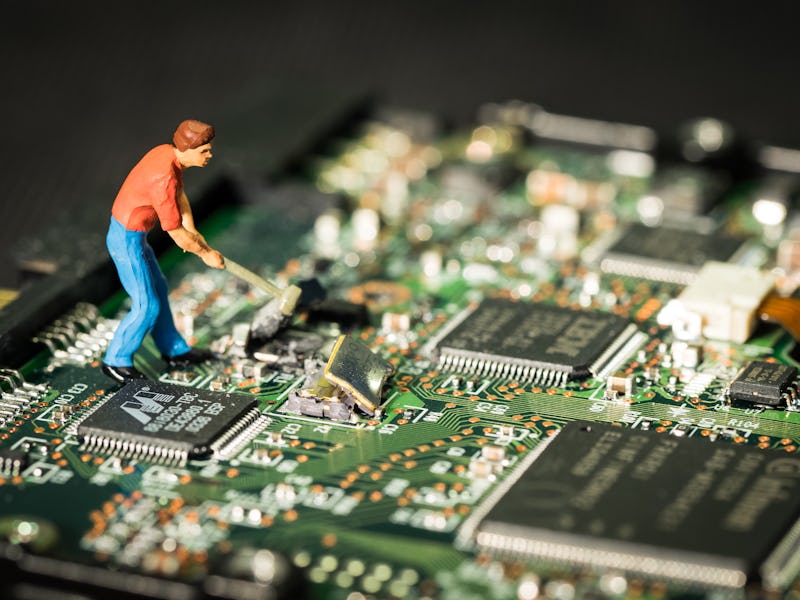Researchers Create Chips That Are Unhackable and Virtually Indestructible
It could be used for cybersecurity in the military.

Keeping critical information like your online banking login or credit card number out of the wrong hands is a crucial but difficult part of living in the age of the Internet. Installing antivirus software or using password lockboxes are probably security precautions that you’ve taken to keep yourself from becoming a cybercrime statistic. But organizations like the military have access to such sensitive information that these standard precautions just aren’t enough.
A team of Korean researchers were able take this a step further and create PUFs that are virtually indestructible. In a paper published Wednesday in the journal ACS Nano, the group details how their research can be used by military organizations that need to keep their information tightly secured but are often exposed to harsh environments.
That’s where what’s known as physical unclonable functions (PUFs) come into play. PUFs are like fingerprints that give each chip inside a computer a unique identity that is pretty much impossible to replicate. These fingerprints are formed when each chip is manufactured, so it’s almost like how every snowflake is different when it makes it down to the ground.
They called their invention NEM-PUF, or nano-electromechanical PUF. These are made up of an extremely small, silicon nanowire that is suspended in a liquid between two gates. These gates represent a one and a zero. During the making of NEM-PUFs, the liquid that the nanowire is floating in evaporates and the wire randomly sticks to one of the gates.
Grouping a bunch of these chips together creates a really long — and completely random security code — that is nearly impossible mimic. So trying to access data from another machine without this code embedded into it would result in an “Access Denied” message.
Once the these NEM-PUFs were proven to be strong cryptographically, the group of researchers subjected them to various stress tests to see how physically strong they were.
“The robustness of the NEM-PUF was also confirmed under several harsh environments, including high temperature, high-dose radiation, and microwaves,” states the research paper.
This type of resistance is essentially unmatched by other PUFs, which can be damaged at certain temperatures. The group even enabled them to self-destruct if a breach were to occur. This research could provide a product for organizations or companies that regularly take computers into harsh environments for typical hardware.
Let’s hope this can put a dent in the amount of leaks and hacks we’ve become accustomed to. After all, this might start out as military tech, but there’s a long tradition of military hardware finding itself into civilian computers and phones.